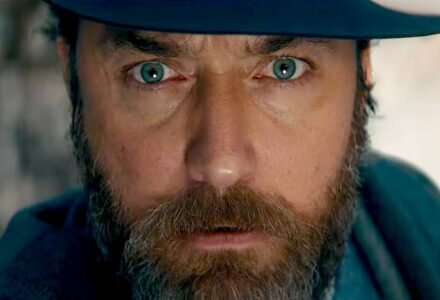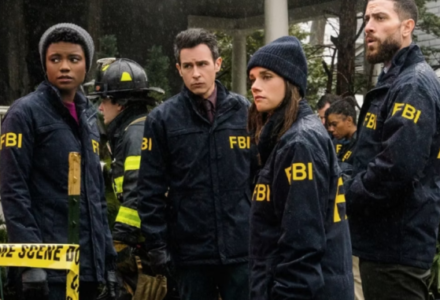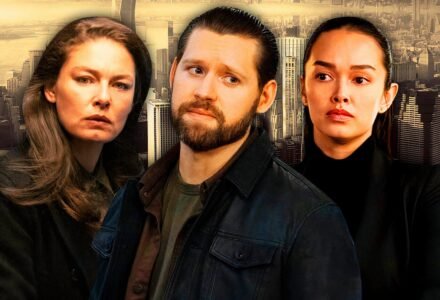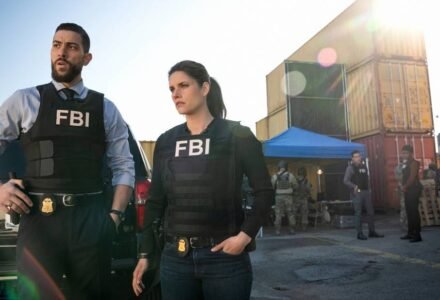Martin Scorsese is no stranger to controversy, having made intense and violent films over his long and storied career as a director. There is a three-dimensionality to his characters that makes them totally unforgettable and deeply relatable. Think of Travis Bickle (Robert De Niro) of Taxi Driver, a hero in his mind but a depraved lunatic to those looking in. Travis is deplorable, but the character's innate humanity brings him to life and keeps the viewer engaged. What shall become of this man? That is the genius of Martin Scorsese; he shows us the humanity of people who are largely inaccessible to the public, save for a newspaper headline.
That honesty in filmmaking is sure to ruffle some feathers, because the truth can hurt — some folks like the binary of human and inhuman as it makes navigating the world easier. But surprisingly, Scorsese's most controversial film wasn't a gangster film; it was a film about Jesus of Nazareth in The Last Temptation of Christ. The film is so contentious that the embattled director would require FBI protection when he publicly appeared to speak about the film.
'The Last Temptation of Christ' Was Extremely Controversial
The Last Temptation of Christ took a long time for Scorsese to make. He wanted to make a film about Jesus Christ since he was a little kid. Scorsese, of course, grew up in a Catholic household, and it stands to reason that the figure of Christ loomed large in his life. The seeds of the film germinated slowly and would begin to sprout early on in his career. In 1972, when he was directing Barbara Hershey in the very unsuccessful film Boxcar Bertha, she gave him a copy of the book the film was based on, the 1955 novel of the same name by author Nikos Kazantzakis.
The book, like the film, was very controversial. The film depicts the life of Jesus of Nazareth (Willem Dafoe) as he comes to terms with his relationship with God. He struggles with feelings of fear, hatred, lust, doubt, and depression in the very same manner that all people do. The film, therefore, focuses on Jesus the man rather than his divinity, which, although a big part of the movie, is nearly as important as those aspects of his character that make him a man.
It is important to note, however, that Scorsese set the audience up for this radical departure from the Gospels in the Holy Bible, from which the story of Jesus comes. In the film's opening credits, the director drops a disclaimer, "This film is not based on the Gospels, but upon the fictional exploration of the eternal spiritual conflict," in what might be the earliest example of a trigger warning. The film opens with Jesus of Nazareth, a carpenter by trade, making crosses for the Romans. He is in agony, slumped over and full of fear and doubt. The word of God screeches like a hawk tearing at his mind, and he writhes in abject pain in the dirt inside the simple hut where he lives and works. He is far from the figures cast in stained-glass windows and adorning the necks of the faithful. He is weak, scared, and so utterly human, and this is precisely where the controversy lies.
Willem Dafoe Played a Doubting Jesus in ‘The Last Temptation of Christ’

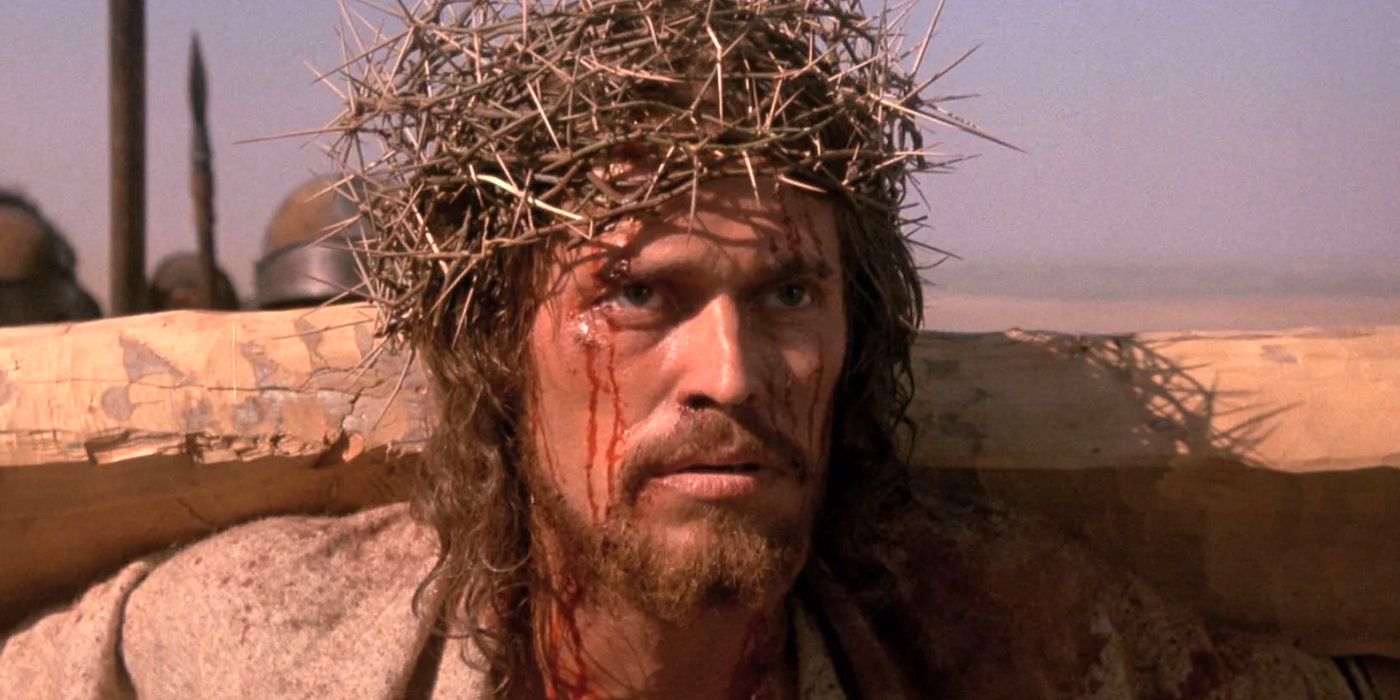
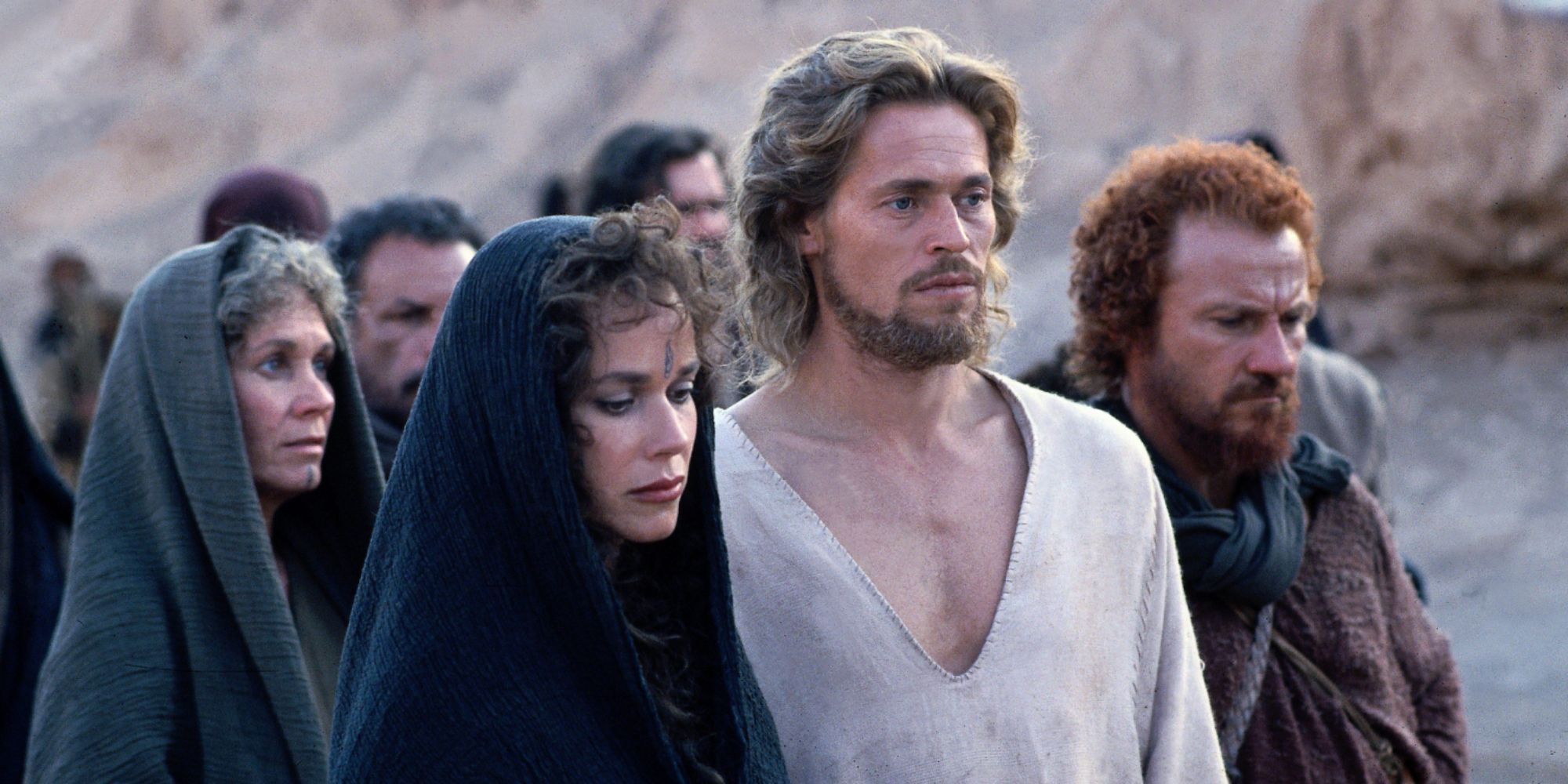
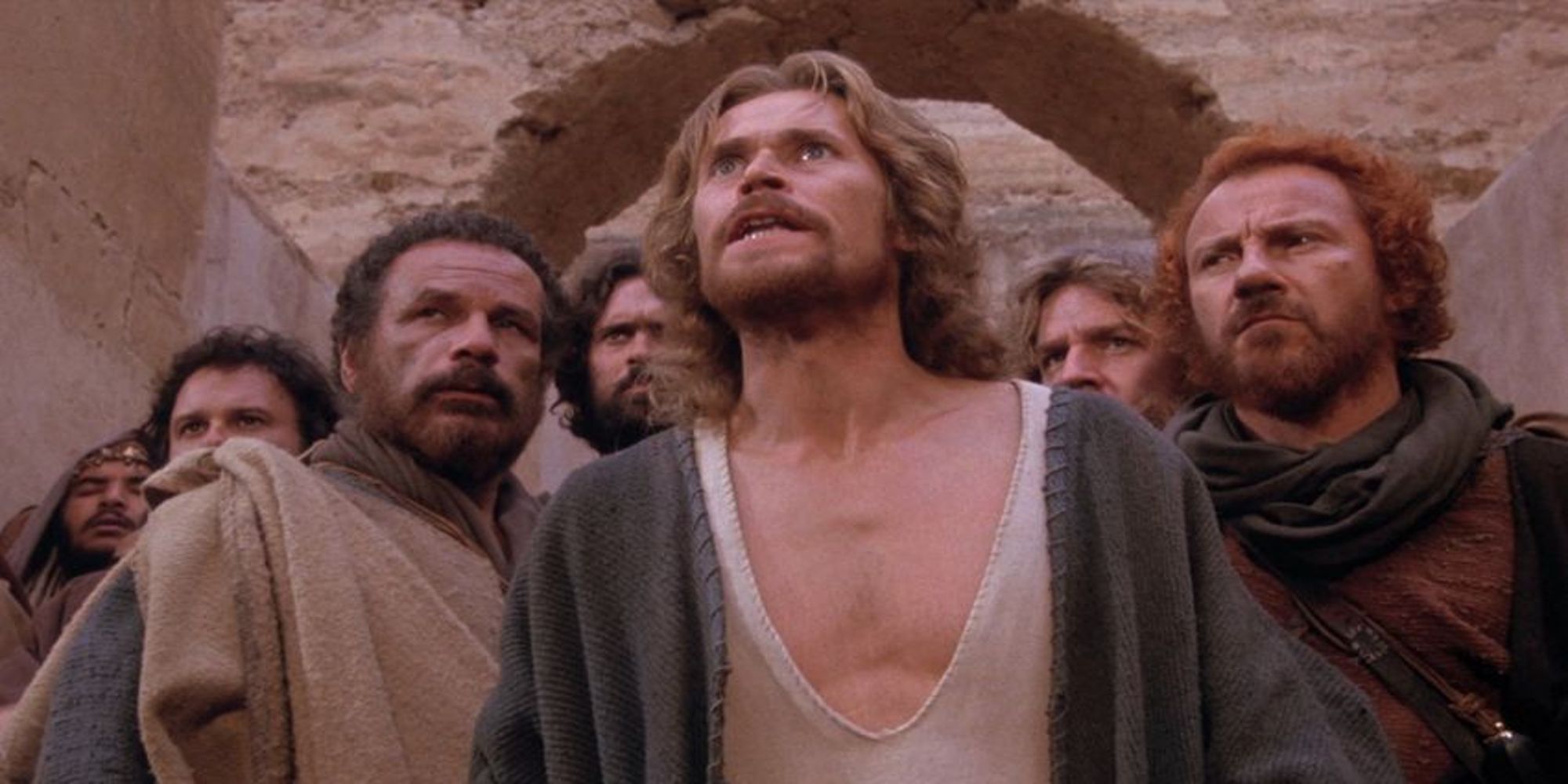
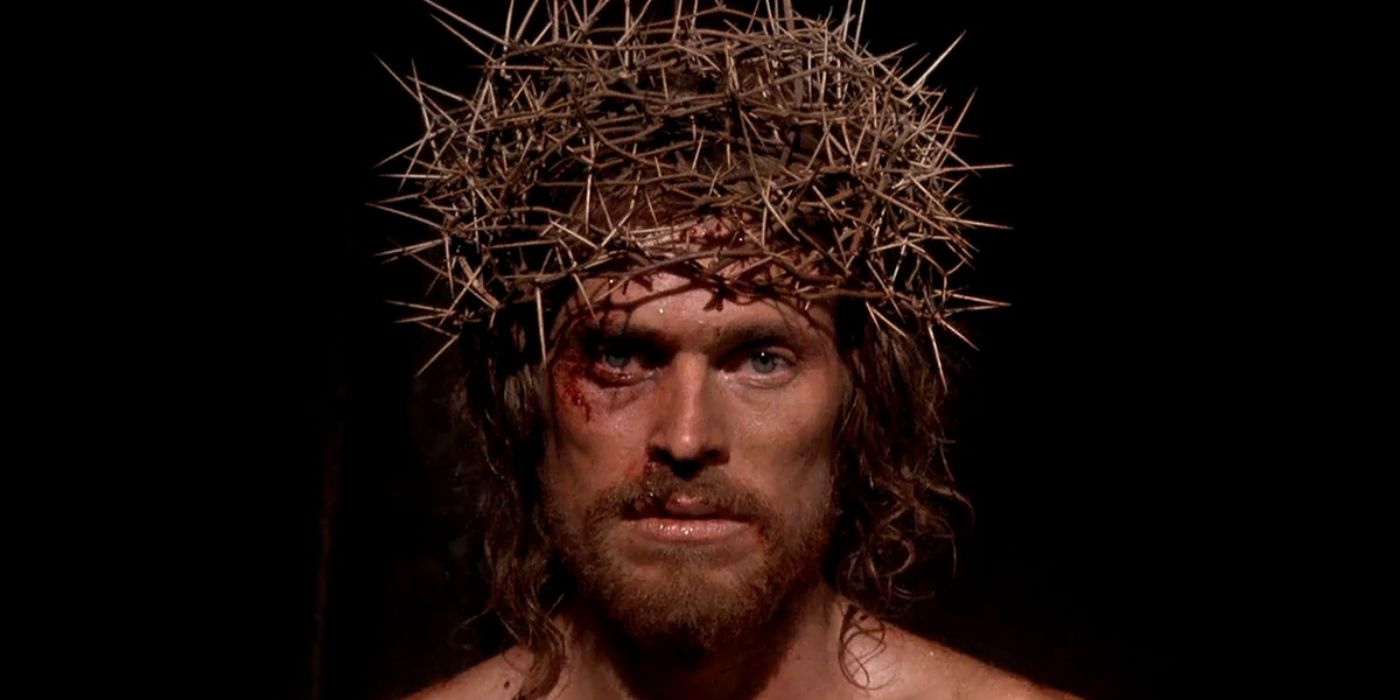





Jesus Christ's relationship with God in The Last Temptation of Christ is not a comfortable one. Instead, he seems to suffer significantly because of it. He is in physical pain, often hearing voices and seeing visions. His mother thinks that perhaps this affliction is the work of Satan, and Jesus himself is unsure. But from the perspective of the viewer, it is not a far stretch of the imagination to imagine that he might simply be living with mental illness. He was perhaps torn between his identity as a Jewish man and his job of making crosses for the Romans to crucify other Jewish people. Even his friend, a militant zealot named Judas Iscariot, brilliantly portrayed by Harvey Keitel, doubts his manhood. Judas slaps the quivering Jesus around like a child and demands answers about his actions. He throws himself at Judas' feet, kisses his hand, and tells Judas that he struggles but cannot answer what he struggles with. Judas storms out angrily and exclaims, "I struggle. You collaborate."
The film situates Jesus in the thick of a Jewish revolt against the Roman state, and these political connections are a significant feature of the film. Jesus, through his preaching, challenged the authority of the state and the authority of the religious leaders of the day and their hypocrisy. His relationship with Mary Magdalene (Barbara Hershey) is the best example of this more humanistic approach to Christ. Jesus is torn between his desire to love a woman and have a family and his duty to God. This made Mary angry with him and God; Jesus felt great sorrow. Mary is also much reviled by her fellow Jews; they try to kill her with stones, and Jesus saves her. It is a direct challenge to the religiosity of the day. This doubting version of Christ is drastically different from the more resolute versions that people are familiar with. The Divinity of Christ is what is at stake in this film. Was he a man, or was he a child of God? The answer is ambiguous but extremely powerful, and this made people angry.
Martin Scorsese Needed FBI Protection After Making 'The Last Temptation of Christ'
While the film was critically praised, and a success at the box office, not everyone was happy with the director. According to Roger Ebert in his book Scorsese, Scorsese himself received death threats, having to cancel public appearances for some time and seek protection from the FBI. The film stands as Scorsese's most controversial work, a deep exploration of his Catholicism and the humanity of Jesus that worked to significant dramatic effect. However, the stones were not cast, and people began to mobilize against the film. Protests erupted at theaters and even Universal Studios, where 600 picketers protested the film's departure from the Gospels and its depiction of Jesus and Mary Magdalene. A Catholic nun from the Eternal Word Television Network described the film as "the most blasphemous ridicule of the Eucharist that's ever been perpetrated in this world" and "a holocaust movie that has the power to destroy souls eternally." The film would face bans in Greece, Argentina and Mexico. Even as recently as 2024, the film is banned in Singapore and the Philippines.
It is safe to say that Scorsese upended Catholic religiosity in much the same way the character of Jesus did in the film — an ironic twist to an extraordinary tale. But things got even worse from there. On October 22, 1988, 13 people were victims of a bombing at the Saint Michel cinema in Paris, where a sect of Integralist Catholics took up arms to protest the film. They placed incendiary devices under the seats of the theater and ignited them once the film started. Four people were severely burned, and the rest of the cinema lay in ruins.
The Last Temptation of Christ is perhaps one of the most controversial films of all time, and, of course, it is because it challenges the very idea of Christianity. What makes this film so powerful is its focus on Christ's humanity, which forces audiences to confront their own humanity. This departure from Christian dogma is shocking. Christ is someone who has transcended their humanity and whose divinity is so central to Christian ideology that it overshadows everything else. By bringing Christ down to the level of a man, Scrosese makes the character and the spiritual struggle he endures genuine and visceral.
The Last Temptation of Christ is available for rent or purchase on Amazon Prime Video in the U.S.



